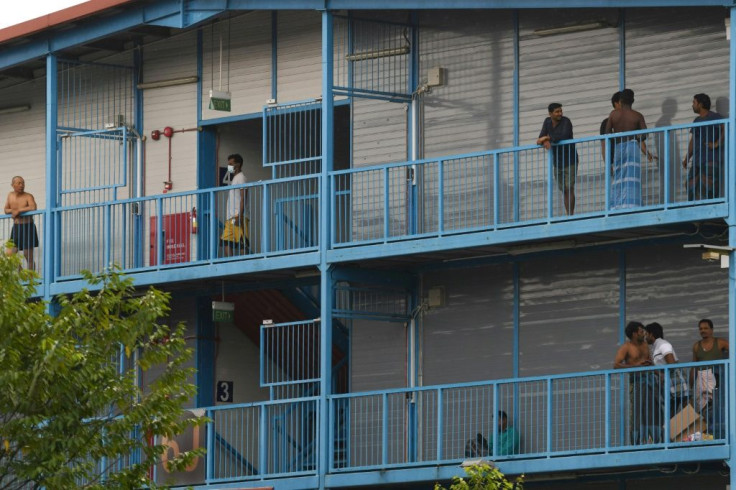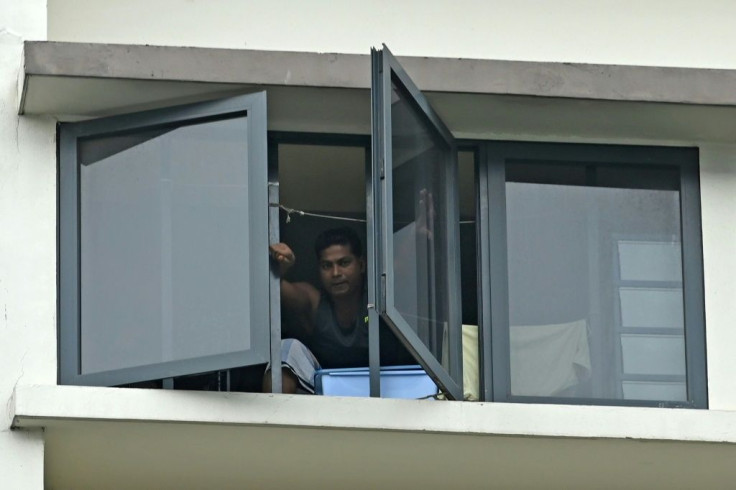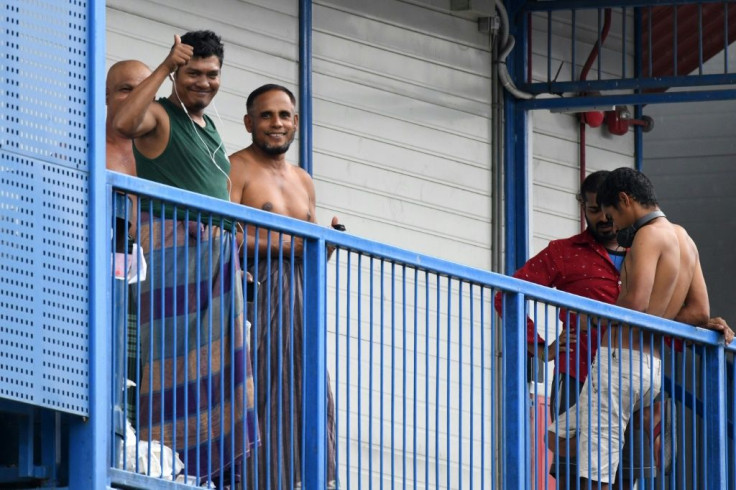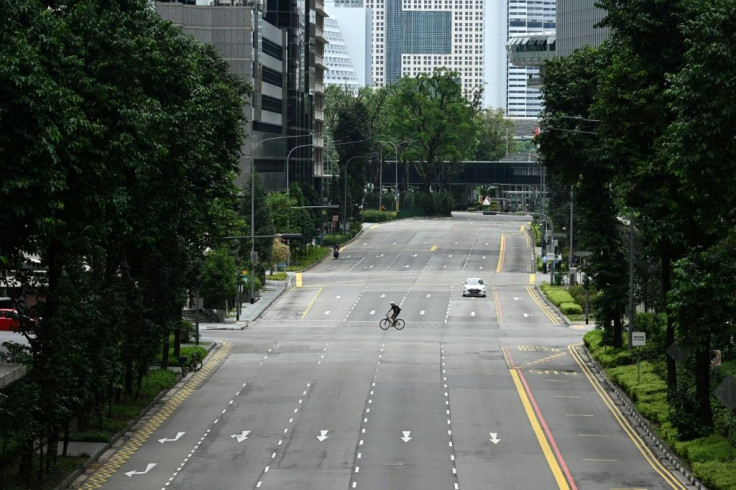Singapore Moves Migrant Workers Out Of Dorms After Surge In Virus Cases

Thousands of migrant workers are being moved out of crowded dormitories in Singapore after a surge in new coronavirus cases linked to the sites, authorities said Thursday.
A sharp jump in cases in the massive dormitories had already prompted authorities to quarantine four complexes housing tens of thousands of people this week.
Fears had been growing among the workers, many of whom are construction labourers from South Asia, that they were highly vulnerable to infection in the cramped dorms where social distancing is difficult.
Singapore health officials Thursday reported a record daily increase of 287 new virus cases -- over 200 of which were linked to the dorms.
In a bid to reduce the risk of infection, many migrant workers are now being moved from dormitories to other sites including military barracks, vacant apartment blocks and a massive exhibition site where the Singapore Airshow takes place, authorities said.
About 5,000 who work in services deemed essential have already been transferred, and thousands more will be transferred in the coming days with the help of the armed forces and the police, they said.

"We are sparing no effort to contain the spread of the virus in the foreign worker dormitories," said Lawrence Wong, a cabinet minister who is a key figure in Singapore's fight against the COVID-19 outbreak.
But he warned that "despite our best efforts at containing the situation, all of us have to be mentally prepared that the numbers in the foreign worker dormitories will continue to rise in the coming days, and perhaps even in the coming week".

The focus will be on moving healthy migrant workers who work in essential services -- such as construction, cleaning and public transport -- out of the dorms.
Officials did not say how many in total would be moved. The government will also step in to help run the dorms, which are usually privately operated.

There are some 200,000 workers living in 43 dorms in the city-state. The sprawling complexes are usually self-contained, have shops and other facilities on-site, and are often located in less desirable parts of the city.
Construction workers typically toil for long hours, earning in the region of $400 to $500 a month building the city-state's glittering skyscrapers and shopping malls.
One worker from Bangladesh, who lives in a dorm where there are several known infections, earlier told AFP that social distancing to fight the virus was "impossible".
"One small room with 12 people living together... how can we make social distance?" the labourer said in English, on the condition of anonymity.
He said hygiene standards were poor and workers were forced to use a communal cooking area and bathroom.
"We know the virus character, how this is spread -- so if this living condition continue I am very worried," he added.
The ministry of manpower has scrambled to improve conditions at the dorms, with caterers brought in to provide regular meals and cleaning services ramped up.
A task force involving government officials, police and the armed forces has also been set up to provide support to foreign workers and dormitory operators.
But Amnesty International warned quarantining workers in close proximity could be a "recipe for disaster", and migrant rights campaigners had been pushing for them to be moved to other sites.
Singapore has reported 1,768 virus cases including six deaths, relatively low by global standards, and has won praise for its handling of the outbreak.
But infections are rising sharply and authorities this week introduced tough new curbs, including closing most workplaces and asking people to stay at home.
The infections at the dorms have sparked soul-searching in Singapore about the treatment of foreign labourers, who have played a key role in the city-state's dramatic transformation from a gritty port into an ultra-modern financial hub.
Writing on Facebook, veteran Singapore diplomat Tommy Koh said it should be a "wake-up call to treat our indispensable foreign workers like a first world country should, and not in the disgraceful way in which they are treated now".
© Copyright AFP {{Year}}. All rights reserved.





















